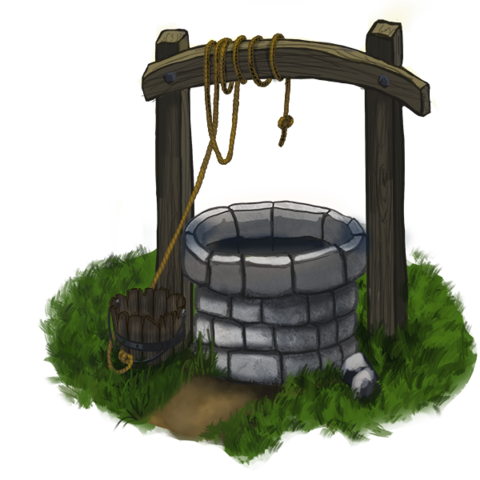Why Everyone IS Leaving the Church and Why They SHOULD BE
The reason the church is emptying through the back door, front door, windows and floorboards is simple. But it isn’t obvious. It’s simple because it’s just a matter of knowing Jesus. It lacks clarity, however, because there are more versions of Jesus than denominations. No wonder Jesus prayed for his followers to be one as He and his Father are One!
The Purpose of the Church
Contrary to the bumper sticker:
The church is not meant to be a hospital, but it often is.
Contrary to the record keepers:
The church is not meant to be an institution, but it often is.
According to Jesus:
The church is a body — one body. Well, it’s meant to be.
The church — the body of Christ — is Jesus’ chosen way to be active in today’s world.
The easiest place to see Jesus’ purpose is in his own actions. Understanding Jesus’ purpose then will help us understand the role of the church now.
Jesus’ Body
When Jesus was living on earth, he bodily served and savoured marginalised people and called religious people to drop the act.
When he was dying, Jesus’ body was broken for the lost — those besmudged and buried in sin. If you’ve hung with him, you’ve heard Jesus say, “You will be with me in Paradise.”
When his body died, everyone lost hope. Some left town.
When Jesus rose, his body walked through walls into places he wasn’t expected, a hint of things to come. Every meal — in every house — became a statement about his act of salvation. A reminder to some. An invitation to all.
When Jesus ascended, his body disappeared. Like the disciples then, we often need to hear, “Why do you stare into the sky? He will return. Now go — be His body.”
When the Spirit came, his body — the church — was in Jerusalem, praying in a small room. Filled with the Holy Spirit, Jesus’ body spoke in many languages and baptised thousands on the first day of the Way.
In Jerusalem, his body brushed up against the religious leaders and told them to drop the act. Then leaving Jerusalem, his body was sent to serve and savour the marginalised.
The first outside convert was an outlier in every regard — a foreigner, a slave, a eunuch. The Spirit found him reading aloud from the Holy Scriptures in a chariot. This may not strike you across the face as firmly it should.
So, let’s reverse through it slowly: (In first-century Jewish understanding, this story is one blasphemy after another.)
Location: This Scripture reading was not in a synagogue but a chariot.
Reader: This Scroll was not being held by a Jewish Rabbi but an unwashed foreigner.
Learning: It was not being read with historical knowledge but scriptural ignorance.
Purity: This man was a eunuch. Eunuchs were not allowed in the Temple. Not allowed to be included in Jewish worship. Certainly not allowed to touch Holy Scripture. And yet, here he is — a gender-reassigned slave, touching and reading Scripture while bouncing along in his foreign queen’s chariot.
The Clincher: The Holy Spirit — knowing all this — sent Philip to catch this precise chariot. Not to tell the foreign eunuch he shouldn’t be touching, reading or questioning Holy Scripture but to tell him the rest of the story — the whole story starting with the passage he was reading. To tell him Jesus died to remove his record of sinfullness and make him — just the way he was — right with the Almighty God. Eternal life and freedom from sin was his, if he wanted it. The telling of this Good News — by the church, the body of Jesus — outside Jerusalem, throughout Judea and into all the world starts here. With a conversation. And it ends with a baptism. All in one day.
The Church: In this mission launching event, the Holy Spirit blew out the religious cobwebs and threw open the church doors. Peter’s night-time struggle with a sheet full of meat pales in comparison with this first conversion! This is what the Body of Jesus is all about. There are no limits to where the story of Jesus can reach. Jesus came to earth to save you and me while we were still sinners, and now he sends us to tell everyone His story.
Good news for the lost in a broken world.
The dying outsiders with real need.
Those who have yet to hear.
The whole story.
This is what the Body of Jesus does.
This is what the true church does.
Why They Leave
When people leave the church, it is because they have not experienced the body of Jesus. They’ve been a victim of mistaken identity — people playing church while outsiders cry out for something to make sense of the senseless pain, suffering and brokenness of life.
Why They Come
The Good News shared in the chariot that day still works. It is still needed. God loves by nature. God forgave you before you asked. Right now, God is holding His hand out calling — and His call is heard when the body of Jesus, his church, knows their purpose. Then hand in hand, two walk into the church where one walked out.
More Good News
You don’t need a degree, a Bible study training course, a script or a secret prayer to get started. Those doing the caring and sharing aren’t perfect. You’re ready right now. All you need is your story of how you met Jesus.
Just like the eleven staring into the sky, some of us still doubt. Like Peter denying; we question our own worthiness and readiness. Like Thomas doubting; we question the nature and nurture of Jesus Himself.
Like the Apostles, we question the meat in the sheet. The worthiness of the hands holding Scripture, the untrained voice reading aloud. The readiness of the eunuch in the river, the sincerity of the baptiser.
Some of us, looking at the ascending body of Jesus, still doubt. His solution? Get us busy. Give us a mission. Go — be His body. Baptising. Teaching. Obeying. Until he comes.
Such an embodiment of Jesus today is a hard place to find but an impossible place to abandon. So, let’s build it. Let’s be it.
Eat everything in the sheet. Drop the act!
Chase a chariot for the Holy Spirit! Tell Jesus’ whole story.
Then come home and testify to the glory of God sweeping the world.
One by one, we’ll shake the saints out of the pews and into the true work of the body of Jesus.
The goal of the church isn’t to stop people from leaving but to set them firmly in Jesus’ mission before they go. Then, they will go tell Jesus’ story. And return with a new friend. Go. Return. Go. Return. Winning the world for Jesus — one chariot conversation at a time!









.jpeg)